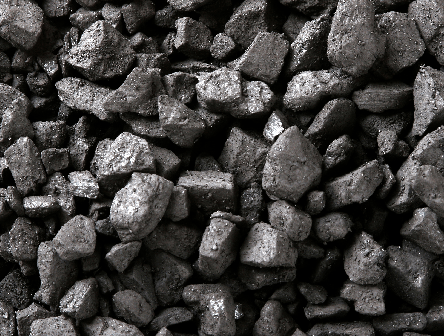Africa and Asia to take strong stand on energy
 Africa and Asian countries are expected to take a strong stand on energy at the World Bank/International Monetary Fund (IMF) spring meetings in Washington, next week.
Africa and Asian countries are expected to take a strong stand on energy at the World Bank/International Monetary Fund (IMF) spring meetings in Washington, next week.
They would be pushing for the Bretton Wood Institution to change the position that it would not officially be funding coal-fired stations.
Access to energy is essential to reducing poverty and with 1.6 billion people globally (645 million of whom, are in Africa) lacking access to electricity, developing countries are likely to push it to alter its stand.
United States (US) President, Donald Trump, has been encouraging multilateral banks to move away from their position on not financing coal production for energy but the problem has been with climate change activists opposed to the production of coal to provide electricity because of what they argue is the threat from carbon emissions.
The World Bank acknowledges that access to affordable, reliable, sustainable and modern energy is vital to end poverty, reach other United Nations (UN) Sustainable Development Goals (SDGs) and critical for many countries to meet their climate change mitigation targets.
Bold policy commitments, innovative technology and increased private investments can help to get them there.
Developing nations are arguing that advances in technology have made coal production cleaner through carbon capture and storage.
With calls for growing restrictions on the use of fossil fuels for electricity production, the world would only reach 92 per cent electrification by 2030, according to the Bank figures.
Such a situation would leave many in the dark and unable to seize economic and social opportunities that can help them lead better lives.
The Bank says on its website that “its engagement in energy sector is designed to help client countries secure affordable, reliable and sustainable energy supply needed to end extreme poverty and promote shared prosperity”.
“This requires a concerted push on sustainable options for energy access, including solar, wind, on-grid and off-grid as well as other viable, low-carbon solutions that reflect every country’s unique circumstances.’
It adds that “it is working with a number of client countries on these fronts and to attract increased private sector participation and investment in the sector”.
The US has signalled readiness to lead a global alliance to make production cleaner and less destructive to the environment.
This alliance has been embraced by countries in Africa with coal reserves of 50 billion tonnes and which want to use this fossil fuel as part of their energy mix – to provide electricity to aid development.
Nigeria, for example, is financing coal projects from the African development Bank that would constitute about 30 per cent of its power mix.
Speaking about the global fossil fuel alliance, last month, US Energy Secretary, Rick Perry, said his country “would welcome and help lead a global alliance of countries willing to make fossil fuels cleaner”.
“Development starts when you have power. This is my message to Africa. America is truly your friend and partner.
And we are here to help Africa use fossil fuels and use them cleanly with the world’s newest and best technology.”
Bloomberg reported, last week, that the Trump Administration has been pushing for the UN and multilateral development bank funds to support the construction of highly efficient plants that produce less greenhouse gas emissions than older designs as well as construct ‘clean coal’ plants that employ carbon-capture technology to strip out even more.
African countries have expressed interest in technology that will reduce emissions while giving them the chance to use fossil fuels for their benefit.
Director of Climate Change at Kenya’s Ministry of Environment, Charles Mutai, has called for an African-funded facility to tackle climate change on the continent.
“The increased climate change vulnerability causes huge burdens in the continent, hence the need for home-grown funding mechanism”, he said, at the Africa Regional Forum of Climate Technology, in Nairobi.
Source: GNA
